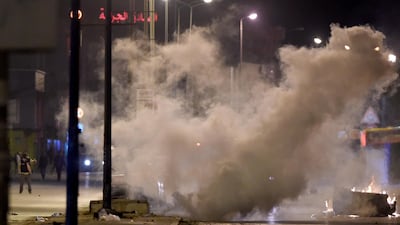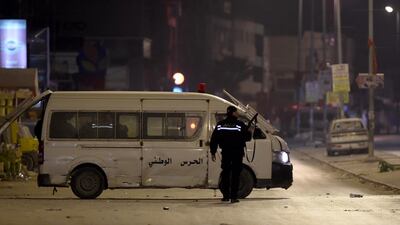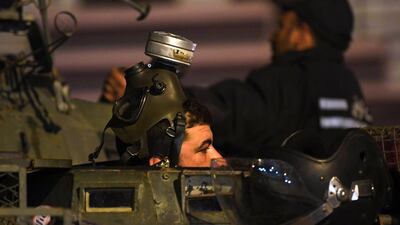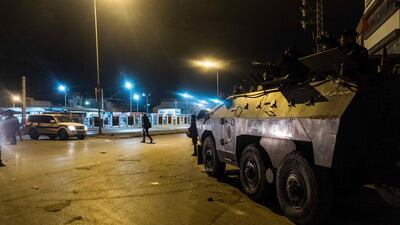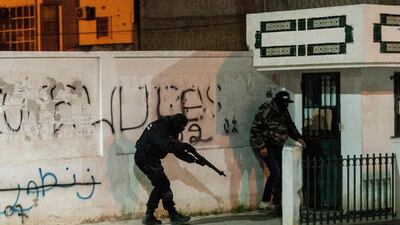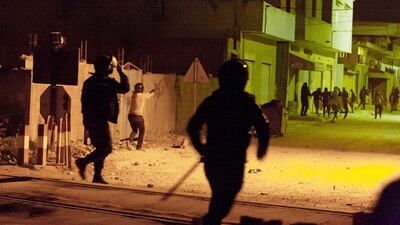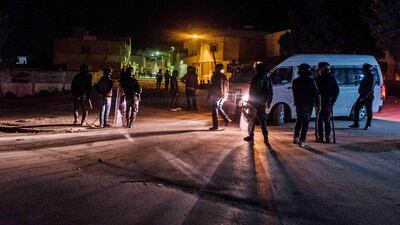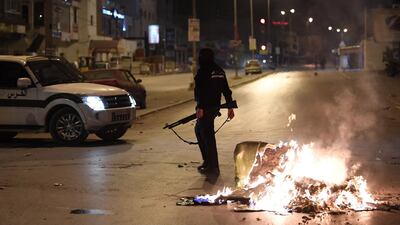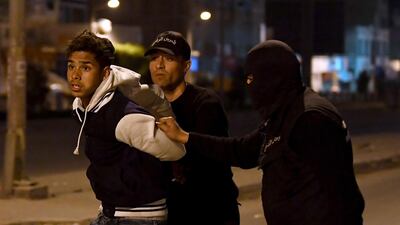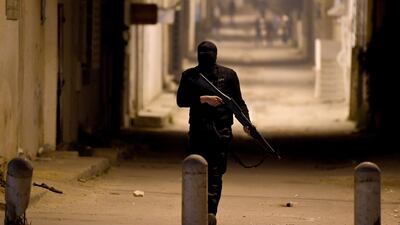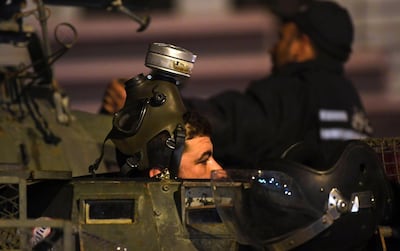More than 300 protesters were arrested overnight in several Tunisian cities as the government called in the army to quell violent demonstrations over austerity measures.
Residents of Bab El Khadra, a popular district in the heart of Tunis, awoke to see the streets littered with the debris of a riot from the night before, including burnt tyres and rubbish bins blocking the main gateway to the neighbourhood.
Mohamed Nasri, a 60-year-old carpenter was thankful that his shop was undamaged but said he understands why Tunisians are taking to the streets in protest at new financial laws which he says will inflict more hardship.
"Life is expensive. Everything has increased. Taxes increase, but not wages," he said.
On January 1, the Tunisian government raised VAT by one per cent to 18 per cent and added import tax on some goods, in an effort to reduce the ballooning deficit and also comply with conditions set by international lenders. But for Tunisians it was the last straw after the depreciation of their currency, inflation of 6.4 per cent and 15.3 per cent unemployment.
On January 3, a group of young activists launched a resistance campaign with the slogan " fech nestannew" - Tunisian Arabic for "what are we waiting for?"
Of the 600 protesters arrested since the violence broke out, ten campaigners from the movement remain in custody for handing out pamphlets, Henda Chennaoui, a spokesperson for the campaign, told The National.
“The population is very receptive, especially in the disadvantaged regions of the country. Seven years after the revolution, it is time to claim our economic rights. Politicians did not keep their promises,” she said.
Clashes notably erupted in working class neighborhoods on the outskirts of the capital, Tunis. Groups of young people, some masked, threw rocks at a police station and were met by volleys of tear gas. In the central city of Kasserine, the army intervened after protesters set fire to a police station. Protesters blocked roads with flaming tyres in several regions, from the western region of Sousse to Beja in the north. A protester died in Tebourba while 70 policemen have been injured.
Read more: Austerity threatens to unpick Tunisia's progress
Prime minister Youssef Chahed condemned what he called "vandalism" and accused corruption networks and left-wing opposition parties of egging on the protesters to "weaken the state”.
"Everyone makes money to survive. People are forced to work more and more just to dress their children, and the state adds taxes," said Aziz Bassir, an 18-year-old economics student from Bab El Khadrahe. He said he did not take part in the demonstrations because he disagreed with the destructiveness, but the police still took him in for questioning in the middle of the night.
Protests look likely to continue with the fech nestannew movement planning another gathering on Friday on Bourguiba Avenue in the capital.
"Economical difficulties are not new for Tunisians. But it keeps getting worse," political analyst Med Dhia Hammam told The National. "The people do not trust the political elite anymore to fix their problems."
While Tunisia is widely seen as the only democratic success story among the nations of the "Arab uprising", it has also had nine governments since the overthrow of authoritarian leader Zine El Abidine Ben Ali, none of which have been able to deal with growing economic problems.
The demonstrations are likely to intensify as protesters approach January 14, the seventh anniversary of the revolution that toppled the dictatorship.
